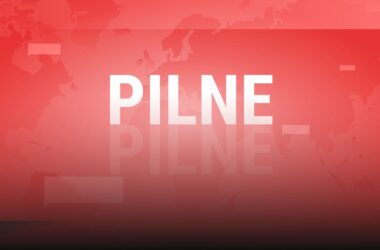Germany will not follow Western allies like France, the UK, or Canada in recognizing Palestine’s statehood during the upcoming UN General Assembly session, according to Chancellor Friedrich Merz.
Germany’s Stance on Palestine Statehood
Germany will not join Western allies such as France, the United Kingdom, or Canada, which have announced plans to recognize Palestine’s statehood during the upcoming September session of the United Nations General Assembly. This was confirmed by German Chancellor Friedrich Merz during a joint press conference with Canadian Prime Minister Mark Carney in Berlin on Tuesday (26.08.2025).
Merz’s Statement
“We will not join this initiative,” Merz said. “We do not believe the conditions for recognizing Palestine’s statehood are currently met in any way. Germany views the recognition of a Palestinian state as one of the final steps toward a two-state solution, allowing Israelis and Palestinians to live peacefully side by side,” he added.
Context of the Attack on Gaza Hospital
Prime Minister of Canada announced earlier in July his intention to recognize Palestine during the UN General Assembly session, citing rising tensions in Gaza and the diminishing prospects for a two-state resolution. The same plan is expected from French President Emmanuel Macron and the United Kingdom. Currently, 147 UN member states recognize Palestine as a state. Poland recognized Palestine’s independence declaration in 1988.
Disturbances Following the Israeli Attack on the Hospital
Merz emphasized that Germany’s position on this issue remains unchanged and has not been influenced by recent events in Gaza, including the attack on Nasser Hospital on Monday (25.08.2025), where 19 people were killed, including five journalists and medical staff.
The Israeli military confirmed the attack on the premises of Nasser Hospital in Khan Yunis. Chief of the General Staff Eyal Zamir ordered a rapid investigation into the incident and expressed regret over civilian casualties, stating that journalists were not the target. One of the killed journalists was a freelancer for Reuters, while others were from Associated Press and Al Jazeera.
Merz Criticizes the Attack
Merz criticized the Israeli attack, stating it casts a “deep shadow” over otherwise justified actions against Hamas. He noted that while he does not believe the attack was specifically targeted at journalists, he will await the final conclusions of the Israeli inquiry.
According to Merz, there is concern that similar incidents may occur in the coming days and weeks, which may be unavoidable. For this reason, he believes the correct decision was for Germany not to supply Israel with weapons that could be used in Gaza under these circumstances.
Journalists Are Dying in Gaza
The German government has called on Israel to ensure transparency in its military operations. A government spokesperson, Stefan Kornelius, stated in Berlin that Germany continues to demand access to Gaza and unrestricted coverage of events there, adding, “For a long time, we have not seen any guarantees that this will happen.”
According to the Palestinian Journalists’ Association, over 240 Palestinian journalists have been killed in Israeli airstrikes since the outbreak of the war in Gaza. The cause of Israel’s invasion of Gaza was the Hamas attack on Israel and the subsequent massacre, which claimed approximately 1,200 lives and took 250 hostages. Around 50 hostages are believed to still be in Gaza, with 20 reportedly still alive, according to Israeli estimates under Prime Minister Benjamin Netanyahu.
Source: Gazeta, https://wiadomosci.gazeta.pl/francja#anchorLink](https://wiadomosci.gazeta.pl/francja#anchorLink), https://next.gazeta.pl/next/7, https://wiadomosci.gazeta.pl/rzad#anchorLink](https://wiadomosci.gazeta.pl/rzad#anchorLink), https://www.dw.com/pl/kanclerz-niemiec-nie-ma-przes%C5%82anek-do-uznania-palestyny/a-73769886](https://www.dw.com/pl/kanclerz-niemiec-nie-ma-przes%C5%82anek-do-uznania-palestyny/a-73769886)





